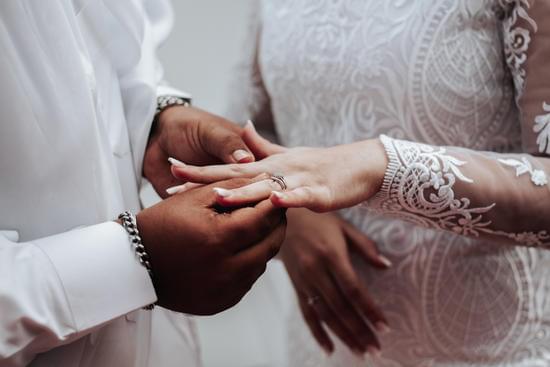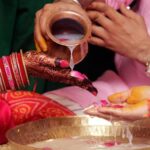Are you interested in learning how to become an officiant for wedding ceremonies? Whether you have been asked by a friend or family member, or have a passion for bringing couples together in marriage, becoming a wedding officiant is a meaningful and rewarding role.
In this article, we will guide you through the process of becoming a certified wedding officiant, understanding the legal requirements, crafting personalized ceremonies, and navigating the marriage license process. We will also share tips for connecting with couples and marketing yourself as a wedding officiant.
Officiating weddings is an important responsibility that requires careful consideration and preparation. It involves not only legally binding the couple in marriage, but also creating a memorable and meaningful ceremony that reflects their love and commitment to each other. As an officiant, you have the opportunity to be part of one of the most significant moments in a couple’s life, making it essential to approach this role with care and professionalism.
Becoming a wedding officiant involves understanding the legal requirements in your area, obtaining certification from a recognized program, and developing the skills necessary to create personalized ceremonies. It also requires navigating the marriage license process, marketing yourself as an officiant, and handling the logistics of performing a wedding ceremony. Throughout this article, we will provide step-by-step guidance on each aspect of becoming a wedding officiant, helping you embrace this fulfilling role with confidence.
Understanding the Legal Requirements
Becoming an officiant for weddings is a meaningful opportunity to play a vital role in the life of couples. However, before beginning your journey as a wedding officiant, it is essential to understand the legal requirements that come with this responsibility. Each state and even local jurisdiction may have different regulations for who can legally perform marriage ceremonies. It is crucial to research and comply with these requirements to ensure that your ceremonies are valid and legally recognized.
Researching State and Local Laws
The first step in understanding the legal requirements for becoming a wedding officiant is to research the laws in the state where you plan to perform weddings. Some states allow individuals to become temporary officiants specifically for one wedding, while others require a formal ordination or registration process. Additionally, certain jurisdictions may have specific rules regarding the filing of marriage licenses and certificates.
Obtaining Proper Credentials
Once you understand the legal requirements in your area, it may be necessary to obtain proper credentials to become an official wedding officiant. This could involve obtaining ordination through a religious organization or completing a government-sanctioned certification program. By ensuring that you have met all legal requirements, you can confidently offer your services as a wedding officiant and provide couples with a ceremony that holds legal weight.
Understanding the legal requirements for becoming an officiant for weddings is crucial in order to create ceremonies that are valid and meaningful for the couples involved. By conducting thorough research on state and local laws, as well as obtaining proper credentials, aspiring officiants can embark on their journey with confidence.
Choosing the Right Officiant Certification Program
Becoming a wedding officiant is an incredibly rewarding experience, as you get to play an important role in couples’ special day. However, before you can start performing weddings, it’s essential to choose the right officiant certification program. Here are some steps to help you find the best program for your needs:
- Research different certification programs: Start by researching the various certification programs available in your area or online. Look for programs that are legally recognized and reputable within the wedding industry.
- Consider your state’s requirements: It’s crucial to understand the legal requirements for officiating weddings in your state or country. Some regions may have specific rules and regulations regarding the certification and ordination of wedding officiants.
- Review the curriculum: When choosing a certification program, review the curriculum to ensure it covers all the necessary topics, such as marriage laws, ceremony planning, and performing rituals. Look for comprehensive training that will equip you with the knowledge and skills needed to officiate weddings confidently.
Once you’ve chosen a certification program that meets your needs, be sure to enroll and complete the required training. Keep in mind that becoming a certified wedding officiant is an essential step in establishing yourself as a professional in the industry.
Remember, obtaining the proper certification will not only build your credibility as a wedding officiant but also give couples confidence in your ability to perform their ceremony with care and expertise. By choosing the right officiant certification program, you’ll be well-prepared to embark on this fulfilling journey of joining couples in matrimony.
Crafting a Personalized Wedding Ceremony
When you become an officiant for a wedding, one of the most important aspects of your role is crafting a personalized wedding ceremony. This is the part where you get to work closely with the couple to create a ceremony that reflects their values, beliefs, and love story. Here are some key aspects to consider when crafting a personalized wedding ceremony.
Meeting With the Couple
Before you start planning the ceremony, it’s important to meet with the couple and get to know them as individuals and as a pair. Ask them about their love story, what they value in a relationship, and any special traditions or elements they want to incorporate into their ceremony.
Personal Touches and Customizations
Incorporating personal touches and customizations can make the ceremony even more meaningful for the couple. This can include readings or poems that hold significance for them, traditions from their culture or religion, or even writing their own vows. As an officiant, your role includes guiding them through these decisions and suggesting ideas based on your experience.
The Flow of the Ceremony
Consider the flow of the ceremony from start to finish. Think about how you want to open the ceremony, how you will lead into different segments such as readings or vows, and how you will conclude the ceremony. Keeping it personalized means shaping each segment in accordance with what holds meaning for the couple.
Crafting a personalized wedding ceremony requires sensitivity to each individual couple’s wishes and openness to trying new things. It’s important that your role as an officiant is not just to perform a rote script but rather facilitate a deeply meaningful and memorable event for everyone involved.
Tips for Connecting With Couples and Creating Meaningful Ceremonies
When it comes to officiating weddings, one of the most important aspects is the ability to connect with the couples and create a meaningful ceremony that truly reflects their love and commitment to each other. This section will provide valuable tips on how to establish a strong connection with the couples you will be working with, as well as ideas for crafting a personalized and memorable wedding ceremony.
First and foremost, it’s essential to schedule a meeting with the couple to get to know them better. Ask them about their love story, how they met, what they love about each other, and what they envision for their wedding ceremony. This initial meeting will allow you to build rapport with the couple and gain insight into their personalities, values, and desires for the ceremony.
Once you have a better understanding of the couple, work closely with them to craft a personalized wedding ceremony that reflects their unique relationship. Incorporate meaningful traditions or rituals that hold significance for the couple, or help them write their own vows that truly express their love for one another.
Paying attention to these details will show the couple that you are dedicated to creating a meaningful and heartfelt ceremony that resonates with who they are as individuals and as a couple.
Finally, don’t underestimate the power of communication and collaboration throughout the entire process. Keep an open line of communication with the couple leading up to the wedding day, offering support and guidance as needed. By establishing a strong connection and working closely with the couple throughout this process, you can ensure that the ceremony is not only legally binding but also deeply meaningful and memorable for everyone involved.
Navigating the Marriage License Process
After completing your officiant certification program, it’s important to understand the process of obtaining a marriage license in the state or country where you will be performing weddings. Each location has its own specific requirements for obtaining a marriage license, and it’s crucial that you are familiar with these regulations to ensure that the marriage is legally binding.
Start by researching the marriage license laws in the area where you plan to officiate weddings. Requirements may include residency, waiting periods, age restrictions, blood tests, and documentation such as photo IDs and birth certificates. Familiarize yourself with the necessary forms and procedures, and make sure you are prepared to guide the couple through the process.
Once you have a thorough understanding of the legal requirements for obtaining a marriage license, it’s helpful to provide this information to the couples you work with. Offer guidance on where to obtain a marriage license, what documents they will need to bring, and any applicable fees or waiting periods. Assisting couples in this aspect of wedding planning can help alleviate stress and ensure that they are well-prepared for their special day.
| Marriage License Process | Requirements |
|---|---|
| Research local marriage license laws | Residency, waiting periods, age restrictions, etc. |
| Guide couples through the process | Provide information on where to obtain a license and needed documents |
By being knowledgeable about the marriage license process and providing valuable assistance to couples, you can establish yourself as a reliable and helpful wedding officiant. This attention to detail demonstrates your commitment to ensuring that each ceremony is not only meaningful but also legally sound. Helping couples navigate this important aspect of getting married will contribute greatly to their overall wedding experience.
Marketing Yourself as a Wedding Officiant
Becoming a wedding officiant can be a fulfilling and rewarding experience, but it’s important to know how to market yourself in order to find couples who are seeking your services. One of the most effective ways to market yourself as a wedding officiant is by creating an online presence.
This can include building a professional website that showcases your services, expertise, and personal approach to officiating weddings. It’s also important to utilize social media platforms such as Instagram, Facebook, and LinkedIn to connect with potential clients and build your brand.
In addition to creating an online presence, networking within the wedding industry is crucial for marketing yourself as a wedding officiant. Building relationships with wedding planners, venues, and other wedding professionals can lead to referrals and collaborations. Attending bridal shows, industry events, and open houses can also provide valuable opportunities to connect with couples who are in need of a wedding officiant.
Furthermore, offering free resources such as informative blogs or hosting workshops on topics related to weddings can help establish you as an authority in the field of officiating. Providing valuable content will not only attract potential clients but also demonstrate your expertise and passion for helping couples create meaningful ceremonies.
Marketing yourself as a wedding officiant requires creativity, persistence, and authenticity. By leveraging the power of digital marketing, networking within the industry, and providing valuable resources, you can successfully attract couples who are seeking a compassionate and skilled officiant for their special day.
| Marketing Strategies | Description |
|---|---|
| Create an online presence | This includes building a professional website and utilizing social media platforms. |
| Network within the wedding industry | Building relationships with wedding planners, venues, and other professionals. |
| Offer free resources | Providing informative blogs or hosting workshops related to weddings. |
Handling the Logistics of Performing a Wedding Ceremony
Performing a wedding ceremony is not just about the words you say or the emotions you convey; it also involves handling various logistical details to ensure that the ceremony runs smoothly. From coordinating with vendors to organizing the wedding party, here are some tips for handling the logistics of performing a wedding ceremony:
- Coordinate with Vendors: As a wedding officiant, you may be required to work closely with other vendors such as photographers, musicians, and venue staff. It’s important to establish clear communication and coordination to ensure that everyone is on the same page regarding timing and logistics.
- Organize the Wedding Party: One of your responsibilities as an officiant is to help organize the wedding party for the processional and recessional. This may involve providing guidance on where to stand, when to move, and how to exit gracefully at the end of the ceremony.
- Create a Ceremony Timeline: Work with the couple and their wedding planner, if they have one, to create a detailed timeline for the ceremony. This should include key moments such as music cues, readings, vows, ring exchange, and any special rituals or traditions that will take place.
Being organized and prepared will not only help alleviate stress for the couple on their big day but also ensure that you can focus on delivering a heartfelt and meaningful ceremony.
Remember that handling logistical details is an essential part of your role as a wedding officiant. By taking charge of these logistics with confidence and professionalism, you can help create a seamless and memorable experience for the couple and their guests.
Conclusion
Becoming a wedding officiant is no small feat, but it can be an incredibly rewarding and fulfilling role for those who are passionate about uniting couples in marriage. Understanding the legal requirements, choosing the right certification program, crafting personalized ceremonies, and navigating the marriage license process are all integral parts of becoming an officiant for weddings. It is also crucial to connect with couples and create meaningful ceremonies that truly reflect their love and commitment to each other.
One of the most important aspects of embracing your role as a wedding officiant is to approach each ceremony with care, compassion, and professionalism. Remember that you are playing a significant part in one of the most important days in a couple’s life, and your guidance can make a lasting impact on their memories.
As you market yourself as a wedding officiant, focus on highlighting your ability to connect with couples and create ceremonies that are unique and meaningful to them.
In conclusion, becoming a wedding officiant requires dedication, passion, empathy, and attention to detail. By following the legal requirements, obtaining proper certification, personalizing each ceremony, connecting with couples, navigating the marriage license process, marketing yourself effectively, and handling the logistics of performing ceremonies with grace and professionalism – you can fulfill your role as an officiant for weddings in both a meaningful and impactful way.
If you are interested in pursuing this path or learning more about how to become an officiant for weddings – taking these steps will help you succeed in this enriching role.
Frequently Asked Questions
What Is Required to Officiate a Wedding in Indiana?
In Indiana, to officiate a wedding, one must be at least 18 years old and considered a member of the clergy, such as a priest, minister, or rabbi. Alternatively, a judge or justice of the peace can also officiate a wedding.
What Is Required to Officiate a Wedding in Virginia?
To officiate a wedding in Virginia, individuals must be authorized by a religious organization and have their authorization filed with the Circuit Court Clerk’s office. Another option is for judges or justices of the peace to perform the ceremony.
What Is Required to Officiate a Wedding in Texas?
In Texas, those who can officiate weddings include members of the clergy who are authorized by their religious organization. Judges and retired judges are also allowed to conduct wedding ceremonies. Additionally, individuals can become temporary officiants through obtaining a marriage commissioner license from the county clerk’s office.

I have been involved in marriages for over 20 years helping couples and singles understand more about them.





